Why LetsRun Is Wrong & USATF Is Right About Olympic Qualifying
Why LetsRun Is Wrong & USATF Is Right About Olympic Qualifying
Debunking The Doomsday Myths Of The 2020 Olympic Selection Process and proving why USATF made the right call for their 2020 selection process.
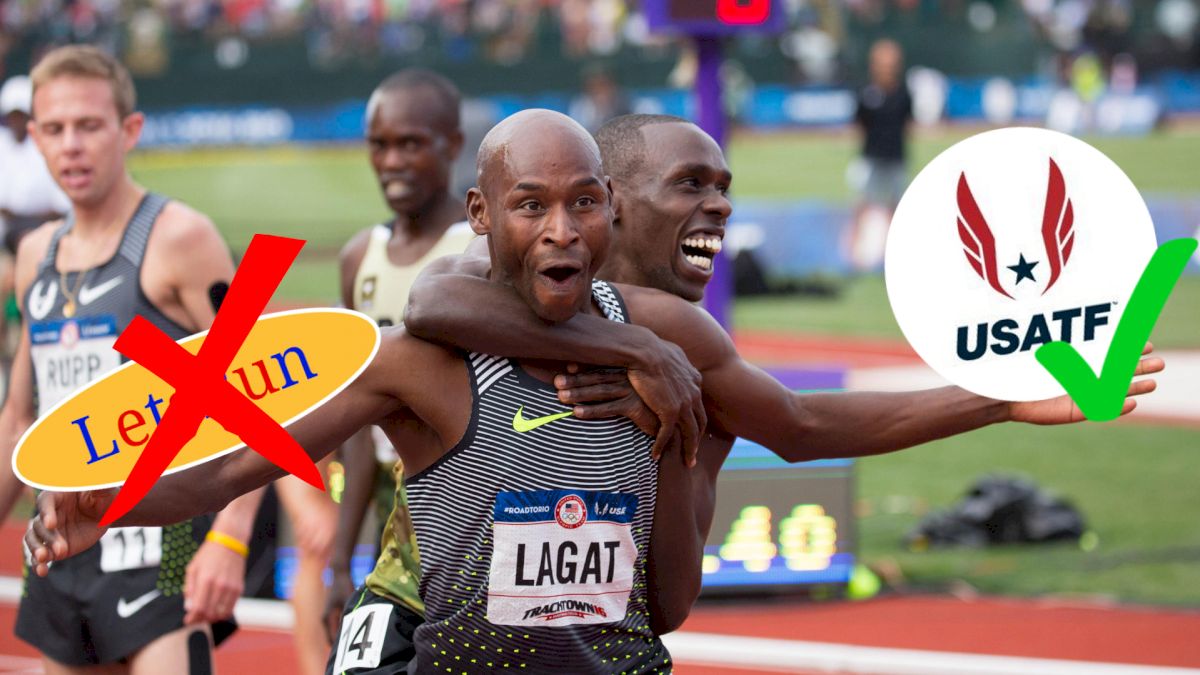
Last week, the IAAF announced its new qualification process for the 2020 Olympic Games, which included tougher entry standards and new computerized world rankings. The reaction was intense as some media outlets painted an apocalyptic worldview for U.S. athletics. In reality, it’s not that dramatic.
In preserving their selection process, USATF honored a simple qualification procedure (Olympic Standard + Top-3 Trials Finish = On The Team) that correctly omitted the IAAF world rankings.
Now, before anyone continues to panic, let’s look at the facts.
Debunking The Doomsday Myths Of The 2020 Olympic Selection Process
Myth #1: Bernard Lagat, Paul Chelimo, Jared Ward and others wouldn’t have made the US. Olympic Team in 2016.
Pretending that Lagat, Chelimo, Ward and others wouldn’t have attempted to run faster during their 2015-2016 seasons to achieve a harder standard is not only shortsighted, but insulting to these athletes’ abilities and acumen. When you chase a standard, you don’t try to run 15 seconds faster than that standard—you run in races that are rabbited to hit or go slightly under the standard. So, assuming runners with Olympic 5K ambitions would have all continued to run 13:20 while trying to hit a 13:13 Olympic standard simply doesn’t make sense.
Myth #2: The marathon standard must be difficult to achieve, because Galen Rupp is the only American to run it recently.
243 men ran under 2:11:30 in 2018. Two hundred and forty-three! The idea that 2:11:30 is an unfathomable standard is nonsense. Also, the Olympic standard also allows top-five Gold Label marathon finishes and top-10 Major marathon finishes to count toward qualifying. For perspective, 11 U.S. men hit that criteria since March 7, 2018.
Myth #3: USATF is wrong for honoring the Olympic standard over the IAAF world rankings.
This is the biggest myth. USATF is 100% right for only using the Olympic standard and not deciding to honor a high “world ranking” as a de facto Olympic standard. Why? Because the “world rankings” are complete bullshit. USATF shouldn’t let a flawed computer system tell them who is worthy of an Olympic team. The only way to decide who is worthy is via a time/mark descending-order list. The clock/tape doesn’t lie; computer programs do.
Here’s Why The IAAF World Rankings Hurt Athletes
1) Athletes get a higher rating based on the geographic location of their mark.
Meaning: A human who threw a shot put 20.00m in California (i.e., the Payton Jordan Invitational) is considered worse than another human who threw a shot put 20.00m in Madrid, Spain (i.e., an IAAF World Challenge meet).
2) Athletes get a higher rating based on their finish place.
Meaning: A human who threw a shot put 20.00m and finished 1st in the competition is considered better than another human who threw a shot put 20.00m but finished second in a different competition, regardless of who is in the field.
3) Season bests are meaningless—athletes get penalized for their third-best performance (fifth-best performance for non-distance events)
Meaning: A human who ran 5000m three times in 13:20, 13:30, and 14:01 for an average of 13:37.00 is considered worse than a human who ran 13:30, 13:40, and 13:40 for an average of 13:36.70. This is because the system weighs an average ahead of a season best.
4) Athletes get penalized for not running enough races.
Meaning: A human could run four races in a season and record top-tier times in all of them, but he or she would still not be eligible for the rankings because you need five performances to be ranked (the exception being three for 5000m/3000m steeplechase; two for 10,000m).
5) Athletes get penalized if their best marks are 10 months old.
Meaning: Even if you achieve a certain mark/time within a qualification period, that mark/time is worthless if it is more than 10 months old, and actually gets removed from your record if it’s 12 months old. So most of the 5000m marks run in May/June 2019 won’t count towards athletes’ 2020 world ranking (an exception is 10,000m times don’t have an expiration date).
Consequently, the world rankings hurt athletes coming off of injury (not enough performances), hurt athletes without agents (can’t get into big meets), hurt athletes without travel funds (can’t fly to Europe to increase performance value), hurt college athletes (the majority of meets they compete in are devalued), hurt athletes who have a bad race day (bad marks stay with you unless you compete enough times to remove the mark), and hurt U.S. athletes (U.S. national champions are valued the same as the Djibouti national champions).
Finally, even if USATF were to honor the rankings, there would still be uncertainty—and that’s because the final world rankings won’t be announced until after the U.S. Olympic Trials. That’s right: USATF wouldn’t even know who is ranked high enough for selection until days after the Trials finish.
As a result, the only way USATF can have the “top-3 and you're in” moment is by sticking to the original process: Olympic Standard + Top-3 Trials Finish = On The Team.
USATF’s decision is actually a great day for U.S. athletics, because the best track team in the world will now run/jump/throw faster and not settle for less during the regular season.
Related Content
 Molly Seidel on the other side of injury and looking ahead to fall marathon
Molly Seidel on the other side of injury and looking ahead to fall marathonApr 17, 2024
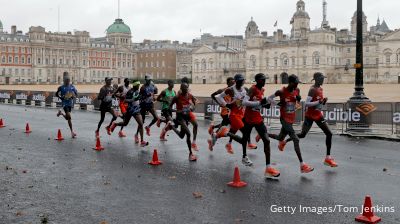 London Marathon 2024 Schedule: What To Know
London Marathon 2024 Schedule: What To KnowApr 16, 2024
 Dakotah Lindwurm looking at head to Paris 2024
Dakotah Lindwurm looking at head to Paris 2024Apr 16, 2024
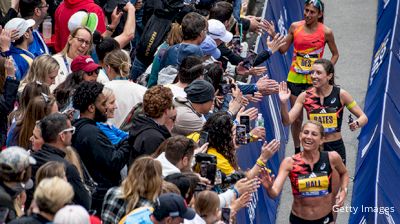 'It Was Worth It.' High-Fivin' Emma Bates Soaked In The Boston Experience
'It Was Worth It.' High-Fivin' Emma Bates Soaked In The Boston ExperienceApr 16, 2024
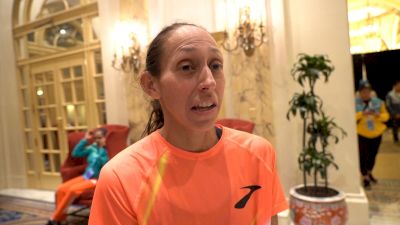 Desiree Linden, Tough As Ever, Finishes 16th At Boston Marathon
Desiree Linden, Tough As Ever, Finishes 16th At Boston MarathonApr 15, 2024
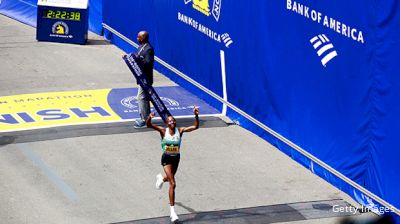 A Dominant Finish From Obiri, A Slick Execution From Lemma In Boston
A Dominant Finish From Obiri, A Slick Execution From Lemma In BostonApr 15, 2024
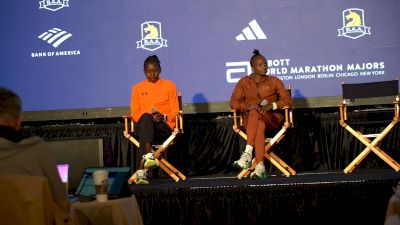 Hellen Obiri Details Her Dominant Final Ks, Plus More From The Women's Press Conference
Hellen Obiri Details Her Dominant Final Ks, Plus More From The Women's Press ConferenceApr 15, 2024
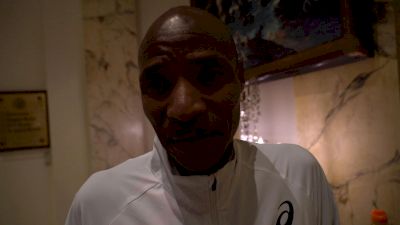 Elkanah Kibet Battled Over Second Half Of Boston Marathon To Finish 14th
Elkanah Kibet Battled Over Second Half Of Boston Marathon To Finish 14thApr 15, 2024
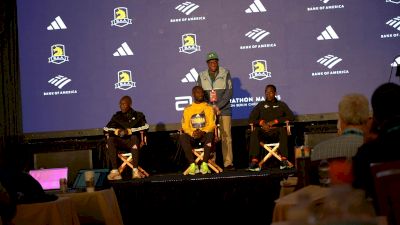 Sisay Lemma Breaks Down His Win, Plus More From The Post-Marathon Press Conference
Sisay Lemma Breaks Down His Win, Plus More From The Post-Marathon Press ConferenceApr 15, 2024